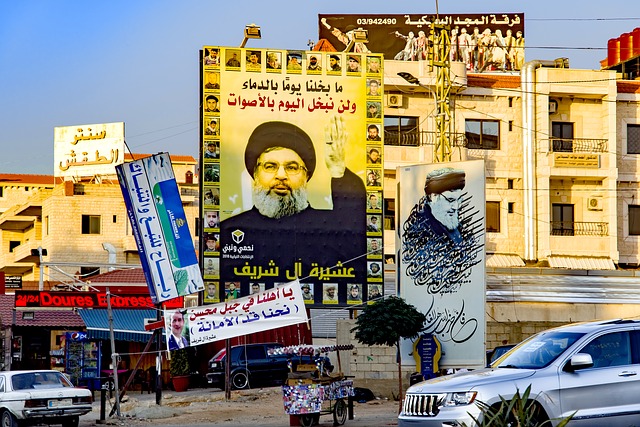BEIRUT: In a speech seen as an act of defiance against the Lebanese state and the US, Hezbollah leader Hassan Nasrallah on Wednesday insisted that Lebanon should be “negotiating with Iran to buy gasoline and diesel with the Lebanese currency if Lebanon’s shortages persist.”
Seemingly unconcerned about the possibility that this might result in international sanctions being imposed on Lebanon, he said, during a televised speech: “Shipments of fuel will arrive at Beirut’s port, and let the state prevent their access to Lebanon.”
Nasrallah’s speech came hours after reports that the Iraqi government has agreed to double a previous promise to supply Lebanon with oil, from 500,000 to 1 million tons. His comments provoked varying reactions among the Lebanese public. Some were surprised and some rejected the idea of buying oil from Iran, given the risk of sanctions. Washington still has sanctions in place on Iran and has designated the military and political wings of Hezbollah as a terrorist organization.
“Nasrallah used a high tone when he talked about bringing fuel from Iran,” MP Bilal Abdallah told Arab News. “The Lebanese are suffering from shortages in drugs, food and fuel. Their suffering should not be used to establish stronger bridges with Iran.”
He said such matters “should be discussed within the state, as the Iraqis did. When things happen outside the framework of the state and parliament, I am not sure they can be beneficial for the country.”
Abdallah added: “People’s suffering cannot be used for political purposes that affect Lebanon’s relations with its neighbors and the international community.”
Elias Hankhash, a politician who along with his Kataeb Party colleagues resigned from the parliament after the Beirut explosion last year in protest against government negligence, said that “Hezbollah controls all the state’s assets, including the illegal border crossings and the legal facilities and is a cover for the corrupt mafia.”
He blamed Hezbollah “for the bankruptcy, hunger and the international isolation the Lebanese are facing” and said that “buying fuel from Iran exposes Lebanon to sanctions and more isolation.”
He added: “It would be better for them to bring the fuel directly to Syria and stop the smuggling from Lebanon into Syria. We know exactly who is behind the smuggling of subsidized goods from Lebanon, which has humiliated the Lebanese waiting in never-ending queues at gas stations to fill their cars.”
During his speech, Nasrallah had attempted to show sympathy for the Lebanese public by saying that “humiliating the people is unacceptable.”
Nabih Berri, the speaker of the Lebanese parliament, on Wednesday thanked Iraqi Prime Minister Mustafa Al-Kadhimi for “his government’s approval to support Lebanon with fuel, increasing the support from 500,000 tons to 1 million tons, to meet half of Lebanon’s yearly fuel needs.”
Lebanon’s Central Bank had refused to open lines of credit to pay for fuel imports, leading to an electricity crisis.
Mark Ayoub, an expert on energy affairs in Lebanon and the Middle East, told Arab News: “In the absence of political solutions to the current crisis, nobody can oppose Lebanon resorting to foreign countries to secure fuel and overcome this difficult period.”
However, he said Nasrallah’s suggestion of working with the Iranian regime was an act of defiance against those who want to help the Lebanese people.
“Lebanon is in a state of emergency, and if we do not get the support we need the country will soon plunge into total darkness and will be completely isolated from the rest of the world,” he said.
On Tuesday, Nasrallah indirectly suggested that the formation of a new government will take a long time yet, dashing hopes of success for efforts by Berri to mediate between prime minister-designate Saad Hariri and the head of the Free Patriotic Movement Gebran Bassil.
The previous Lebanese government resigned in August last year amid public anger about the Aug. 4 explosion at Beirut’s port that destroyed a large section of the city. President Michel Aoun and Hariri have been unable to agree the formation of a new government, as they disagree on who should get to name the two Christian ministers. Aoun insists on naming them but Hariri says that this goes against the constitution and would give Aoun control of a “blocking third” of government portfolios, allowing him to block any proposal that requires a two-thirds majority.
On Wednesday, rumors that Hariri was ready to abandon the negotiations caused another spike in the dollar’s black market exchange rate, where it was selling for between 14,500 and 14,600 Lebanese pounds. Angry Lebanese people took to the streets once again to protest against the economic crisis and their poor living conditions.
.
By Najia Houssari, June 9, 2021, published on Arab News






